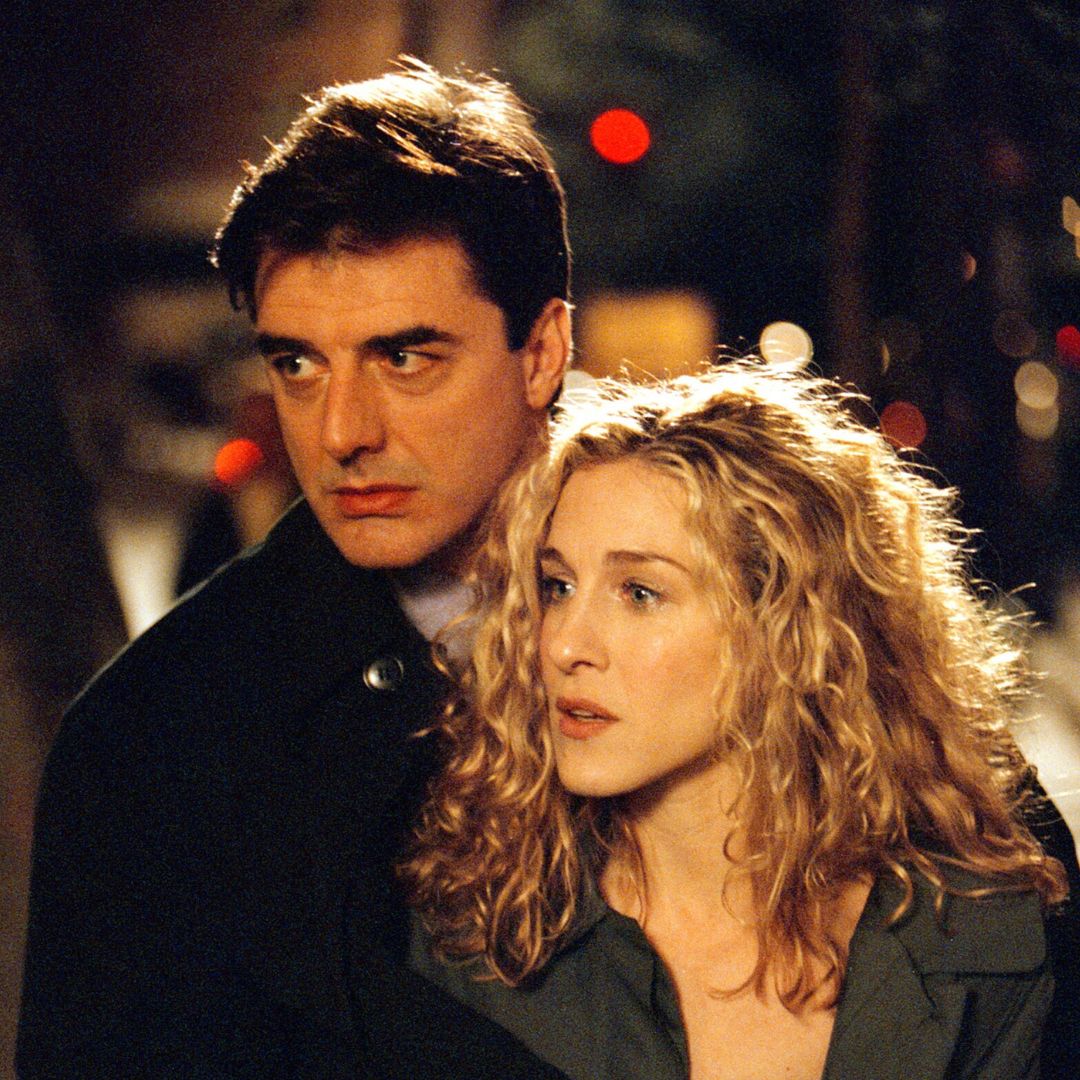Blue Zone living is trending on TikTok - 9 simple habits that promise to be key to a longer, healthier life
Like the sound of lifestyle tweaks that boost both your health and lifespan?

- 1. Follow a predominantly plant-based diet
- 2. Follow the 80/20 rule
- 3. Enjoy wine in moderation
- 4. Exercise regularly, in a way that compliments your lifestyle
- 5. Reduce stress
- 6. Belong to a community
- 7. Find your purpose
- 8. Prioritise your loved ones
- 9. Nurture positivity
- Should I give Blue Zone living a go?
Whether you've seen it pop up on your TikTok For You page or watched the recent Netflix programme, Live to 100: Secrets of the Blue Zones, everyone seems to be curious about blue zone living right now.
No idea what it actually is? Let us explain. Back in 2004, an author named Dan Buettner set out on a mission - to discover the pockets of the world where people lived for the longest. Partnering with National Geographic, the National Institute on Ageing, and two scientists who'd been studying life longevity previously, Michel Poulain and Giovanni Mario Pes, they set out to discover whether people lived for longer in certain areas of the world and further, if specific lifestyle factors were to thank.
And the results were clear: there are specific areas in the world where people live for far longer and experience less chronic disease. Researchers concluded that the people living in "blue zones" were ten times more likely to live past the age of 100 than if you live in the United States - quite the statistic.
Five zones were identified in total - Sardinia in Italy, Ikaria in Greece, Okinawa in Japan, Loma Linda in California, and Nicoya in Costa Rica. Naturally, we're not suggesting you move abroad, tempting as it sounds. That said, Buettner and the team identified nine key similarities in the lifestyles of those living in the blue zones which they predict are the main reason people who live here have the longest lifespans on earth.
Pretty exciting, right? Below, we ask a top personal trainer to explain the nine different factors, plus share the simple ways you can incorporate the habits of blue zone living into your day-to-day. Don't miss our guides to nutritionist-approved energy boosting foods, healthy winter dinner recipes, and the best foods to eat for your hormones, while you're here.
9 blue zone living habits that promise to boost your lifespan
1. Follow a predominantly plant-based diet
As Tim Hart, personal trainer and nutritionist at Third Space London, explains, people in the blue zone regions follow a predominantly plant-based diet, made up of vegetables, grains, fruits and legumes. They also tend to avoid ultra-processed foods, foods high in sugar, and too much meat and dairy, he adds.
"One 2022 review in the journal Nutrients explained that these communities shared the common dietary model of a mostly plant-based diet along with the minor inclusion of animal and dairy foods," he explains.
Marie Claire Newsletter
Celebrity news, beauty, fashion advice, and fascinating features, delivered straight to your inbox!
Try this: Build your meals around fresh fruit and vegetables, complex carbohydrates, healthy fats, and mainly plant-based proteins. This could look like:
- Stir-fried rice, vegetables and tofu
- A vegetable and lentil daal
- Savoury lentil pancakes
- Vegetable and bean soup
- Vegetables, eggs, and beans.
2. Follow the 80/20 rule
Another common similarity between the blue zones? "Residents only eat to the point of feeling 80% full," explains Hart. In Okinawan, Japan, they use the saying “Hara hachi bu” at the start of meals to remind themselves not to appreciate their food and sway from overeating.
While the expert points out that this could be for a number of reasons - food availability, cost, or a lack of overindulgence - it does mean that, as the research concludes, those living in these areas are far less likely to be overweight or obese than in other areas of the world.
The rule also spans the attitudes towards eating, too - there are no dietary "rules" or exclusions in the Blue Zones, rather the inhabitants eat nutrient-dense, balanced meals 80% of the time, and enjoy less nutrient-dense "treats" for the other 20%. Life is all about balance, after all, and as we'll get on to further down the article, embracing and enjoying life (and all the delicious sweet treats it offers, in moderation) is key to both longevity and happiness.
They also tend to eat their biggest meal of the day for breakfast, eating their smallest meal early in the evening before winding down for bed. Years worth of research has proven this kind of eating to benefit your digestion, metabolism, and sleep quality, too - so no wonder those living in the Blue Zones are living for longer.
@elliegervais ♬ original sound - Ellie
3. Enjoy wine in moderation
Interestingly, alcohol was consumed in four out of five of the Blue Zones, which you might assume means drinking alcohol doesn't negatively impact your life longevity and health.
Well, not quite. A further deep dive into the drinking habits of the individuals living in these areas found that they normally drank one to two small glasses of wine at meal times or with friends.
In short, the amount of alcohol you drink and the environment that you drink it in are both important and can impact your health. Similarly to the 80/20 rule above, Blue Zone inhabitants are great at enjoying everything in moderation.
Try this: next time you have a drink, stick to one or two with a meal or in a relaxed social environment. That way, you shouldn't experience any of the negative side effects of alcohol but instead, might reap the social benefits it can offer.
4. Exercise regularly, in a way that compliments your lifestyle
Moving on to exercise. If you assumed that those living in the Blue Zone areas were highly active, you were right. That said, they didn't run marathons or compete in CrossFit competitions - rather, they had active lifestyles and embraced mindful movement that kept them moving day in, day out.
Rather than relying on machinery or tools, they gardened, did housework, and made things by hand, keeping them fit and healthy even as they aged. Essentially, they embrace exercise snacking - short, sharp bursts of movement at regular intervals throughout the day.
Try this: Get off the bus a stop earlier, incorporate a morning walk into your daily routine, or opt for more active weekend activities, like squash, tennis, cycling, or swimming. Remembering to enjoy it is key - exercise shouldn't be a chore, but rather something to be enjoyed and embraced. Walking workouts at the ready.
5. Reduce stress
While the researchers concluded that even those living in Blue Zones experienced periods of stress, they also discovered that they had exceptional coping mechanisms in place to ensure they coped with said periods.
"Okinawans take a few moments each day to remember their ancestors, Adventists pray, Ikarians take a nap and Sardinians enjoy happy hour with enriched Cannonau wine," Blue Zone researchers share on their website.
If stress is left unchecked, you'll likely know that it can lead to chronic inflammation, one of the biggest triggers of age-related disease. Not sure where to start with getting yours in check? Our guides on how to reduce stress, how to manage stress, and how to manage stress at work might help.
Another handy blue zone tool: aim for around eight to nine hours of sleep a night, every night, going to bed when the sun sets and waking when it rises. Getting enough sleep not only boosts brain cells, skin health, and your immune and nervous systems, but allows your muscles to adequately recover, too, boosting your overall quality of life.
@danbuettner ♬ original sound - Dan Buettner
6. Belong to a community
Fun fact: all but five of the 263 centenarians (that's a person who's 100 or more years old, FYI) interviewed by the Blue Zones researchers at the time of research belonged to a faith-based community.
While the community doesn't seem to matter, belonging to one does, with the researchers adding that it could add anything from four to fourteen years to your life expectancy.
Wondering why? Well, as they explain on their website: "A sense of belonging supports individual well-being and is one of the behaviours connected to longevity." Case in point: one nature human behaviour study published in June this year found that socially isolated individuals have a 26 per cent higher risk of death, while prolonged loneliness raised your risk of death by 14 per cent.
Similarly, social interaction boosts your brain health. In scientific terms, speaking to others uses specific parts of the brain needed to formulate responses, and regularly using this part of your brain only increases the connections between brain cells and neural circuits. Wondering why this is important? Well, the more active you keep your brain, research shows, the less likely you are to develop neurodegenerative diseases like Alzheimer's and Parkinson's disease.
Try this: If you feel lonely or like you're not connected to a local community, why not try heading to a local run club, workshop, or monthly meeting? You could also volunteer at a local charity, help out at your local allotments, or host your own community night. Whatever you do, you'll be making connections in your local area.
7. Find your purpose
This one's important, according to the researchers. If you've ever struggled with understanding what your true purpose in life is, you might sympathise with this one.
"The Okinawans call it “Ikigai” and the Nicoyans call it “plan de vida," the Blue Zone website reads. In short, for both it translates to their reason for getting up in the morning.
Researchers reckon that if you have a strong "why", a clear reason for living, and an unwavering sense of purpose, you're more likely to live a long and happy life.
8. Prioritise your loved ones
While you might have assumed many of the Blue Zone living "rules" were diet and exercise-based, many of them are actually rooted in community and family. Most of those living for longer prioritised their family, making sure they lived nearby or with them and spending regular quality time with them.
The researchers reckon that those living in the blue zones have strong social networks which encourage positive behaviour and, in turn, happiness.
@annakatsas ♬ original sound - Anna Katsas
9. Nurture positivity
Last but by no means least, one of the most important factors for those living in the Blue Zones was having a positive outlook on life.
Doing so helps them shed stress and, in turn, appreciate the small things in life. Wondering how to do this? Our guide to finding joy might help - but do note, it'll vary from person to person, individual to individual. Those actually living in the Blue Zones tend to:
- Take naps when necessary (before 3pm and for around 20 minutes)
- Find time for prayer and reflection
- Remember their ancestors
- Spend time with family and loved ones
- Contribute towards the community.
Should I give Blue Zone living a go?
While Hart certainly believes that some of the key tenets of blue zone living could be beneficial to adapt, he warns to sway away from the over-marketing of the diet at current. "The simplistic explanation above seems at odds with the often over-glamorised idea of the Blue Zone diet," he stresses. "It’s important to remember how diverse these communities really are. The idea of distilling all ethnic, cultural and religious elements of a population, developed over many centuries into a quick, marketable diet book is optimistic at best."
He continues: "While the latest Blue Zone Diet books profess to enlighten us about long-forgotten dietary secrets, the simple truth is one we likely know already – a diet heavy in natural plant-based foods is good for you." This doesn’t necessarily mean eradicating meat or dairy entirely, he goes on, rather adding plenty of vegetables, nuts, and legumes into your daily intake.
Bottom line? While it’s true that adopting the recommendations made by the Blue Zone Diet will provide health benefits, it doesn't necessarily make it superior to all other lifestyles. "Ultimately, listening to your body is the most important thing, but the principles of this lifestyle can certainly guide us into making better choices that will contribute to increasing our own life expectancies."
What is the point of the Blue Zone research?
"By studying the various dietary and lifestyle behaviours of these Blue Zones, the hope is that we will be able to replicate these health benefits across other areas of the world," Tim Hart, personal trainer and nutritionist at Third Space London explains.
He goes on: "The concept is similar to the Mediterranean Diet, a dietary model that attempts to replicate that of the regional population of areas such as Southern Italy, to yield similar health benefits."
So - will you be giving it a go?

Ally Head is Marie Claire UK's Senior Health and Sustainability Editor, nine-time marathoner, and Boston Qualifying runner. Day-to-day, she heads up all strategy for her pillars, working across commissioning, features, and e-commerce, reporting on the latest health updates, writing the must-read wellness content, and rounding up the genuinely sustainable and squat-proof gym leggings worth *adding to basket*. She also spearheads the brand's annual Women in Sport covers, interviewing and shooting the likes of Mary Earps, Millie Bright, Daryll Neita, and Lavaia Nielsen. She's won a BSME for her sustainability work, regularly hosts panels and presents for events like the Sustainability Awards, and is a stickler for a strong stat, too, seeing over nine million total impressions on the January 2023 Wellness Issue she oversaw. Follow Ally on Instagram for more or get in touch.
-
 Prince Harry's "proud" words about wife Meghan Markle are going viral
Prince Harry's "proud" words about wife Meghan Markle are going viralBy Jenny Proudfoot
-
 Sources have opened up about Timothée Chalamet and Kylie Jenner's "intense" start to the year
Sources have opened up about Timothée Chalamet and Kylie Jenner's "intense" start to the yearBy Jenny Proudfoot
-
 Two Hollywood actresses were offered the role of Carrie Bradshaw before Sarah Jessica Parker
Two Hollywood actresses were offered the role of Carrie Bradshaw before Sarah Jessica ParkerBy Jenny Proudfoot